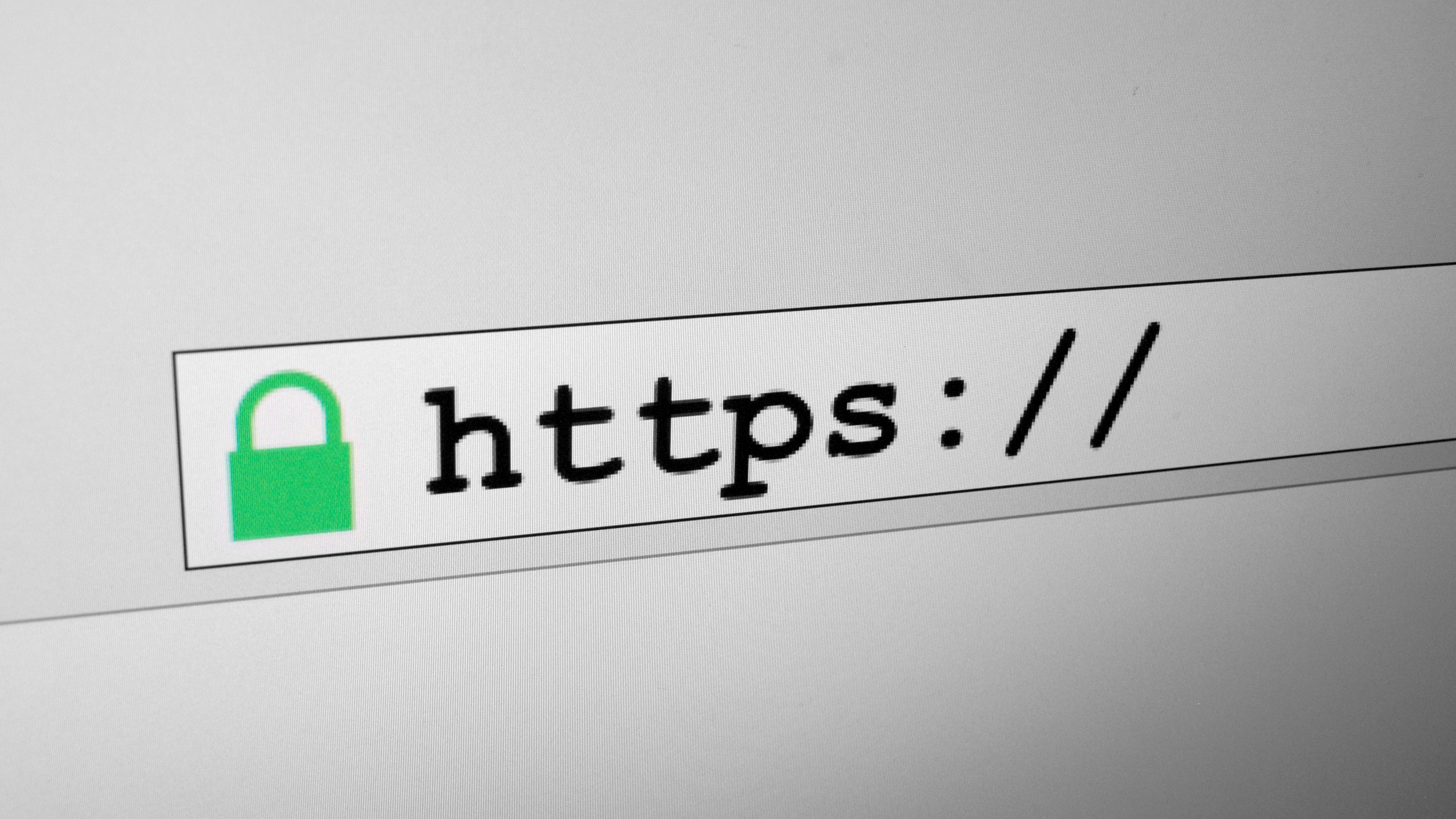Why your online business needs SSL protection
Build customer trust with an SSL certificate

You’ve picked out the perfect domain name for your online business, and figured out what type of web hosting is best. Now it’s crucial to make sure your website is safe and secure for users and potential customers. You need SSL!
But what is SSL?
To start, if you’re not familiar with SSL, perhaps you’ve seen websites that have https:// instead of http://. That “s” tells visitors the website uses SSL, and the information passed to that site’s server will remain private. SSL stands for Secure Sockets Layer, and the letters “https” stand for “Hypertext Transfer Protocol, Secure.” Additionally, another indicator a website has SSL is a padlock icon to the left of the address bar, or a “green bar” in the URL.
- Get your website up and running with the best web hosting
- Take the stress out of WordPress with the best managed WordPress hosting
- Find the perfect domain with the best domain name registrars
How does SSL Work?
When data is transmitted through a website to a server or browser, SSL adds a layer of protection through encryption. Sensitive information like passwords, credit card numbers, banking information, email addresses and other critical data is protected through SSL’s encryption process. SSL protocols encrypt the data before its transmitted, rendering it worthless to anyone attempting to intercept it as it travels through the interwebs. SSL also verifies both sender and receiver of data to each other. In fact, many of the most common phishing or spoofing scams are more challenging for hackers to pull off on a site that has SSL protection.

SSL protects traffic all over the Internet
Anytime someone is surfing the web, they are exchanging data with websites. As part of that process, all internet users have an underlying expectation that they are dealing with legitimate businesses, and that their data will be in safe hands.
Another popular way to show website security as well as attract repeat customers, is by using SSL trust seals, also known as “site seals” or “trust badges”. These visual images denote that a website meets a set of industry standards and criteria for security and trustworthiness. Many studies found that consumers are keenly aware of trust seals, and they understand what they represent in terms of a website’s security.
Boost your website's SEO
SSL certificates can do much more than just keep data safe. They also ensure your site will rank higher in the most popular search engines. Google wants all websites to have SSL certificates, and they’ve made no secret of their efforts to reward compliant sites as previously mentioned. Back in 2014, Google started giving HTTPS sites a modest boost in search results, and then in December 2015, Google even admitted that they give search priority to these more secure sites.
Are you a pro? Subscribe to our newsletter
Sign up to the TechRadar Pro newsletter to get all the top news, opinion, features and guidance your business needs to succeed!
With the mounting pressure to increase SSL coverage, it’s likely that sites with SSLs will continue to benefit from Google’s search algorithms. This means that, even for simple websites that don’t request customer data, having an SSL certificate will help your site be found in searches more organically.
The past few years, Google has also especially championed mass adoption of SSL. In order to persuade website owners to adopt SSL, Google does two things: One, it considers the presence of an SSL certificate as a ranking signal. Two, it offers a positive designation in the address bar of the Google Chrome browser for websites using SSL.
At the same time, if a site does not have SSL, the Google Chrome browser will categorize the website as potentially unsafe. For e-commerce websites, when a customer submits their personal information to make a purchase, they especially have to trust that the transaction is safe, and their personal data is secure. In fact, websites’ responsibility of protecting user data is so important that Google has been actively encouraging sites to add SSL protection. Since July of last year, Google now displays security warnings for e-commerce sites that lack an SSL certificate. The Google Chrome browser shows “site not secure” when a websites lacks SSL protection.

Build trust with customers through SSL
Establishing and maintaining trust with your customers may be the single best reasons to have SSL certificates on your websites. Even sites that don’t require credit cards or the exchange of financial information, trust is still incredibly important. SSLs is reassurance to customers, and in turn, could increase your blog or membership site’s credibility. How, do you ask? Each time a visitor likes a blog, leaves a comment, or just logs in, they are sharing potentially sensitive data. An SSL is a simple way to show that that data is kept secure and private.
As mentioned above, HTTPS sites (especially those with the green bar visuals) also help reassure visitors that they’re on a high-value, safe and well-known website, and not a sketchy, potentially fraudulent website. At the end of the day, the more you increase customer’s confidence in your online business, the more likely your online business will be successful.
In the end...
Clearly, the benefits of protecting your online business website with an SSL are plenty - and crucial. These benefits discussed can boost site conversion rates and search engine rankings, among other things.
So, at the end of the day, between encryption and SEO, it’s really a good idea to install SSL certificates on all websites, even if it’s just a personal blog or website without any interactions. Because fewer things are more valuable than your peace of mind where online security is concerned.
Derek Musso, Head of PR and Communications at Namecheap
- We've also highlighted the best website builders
